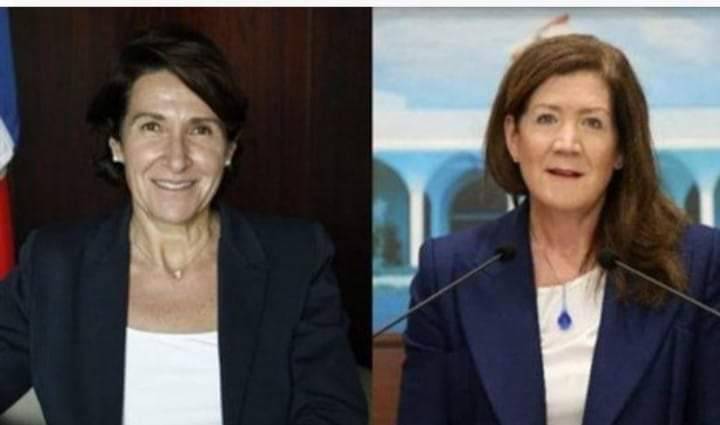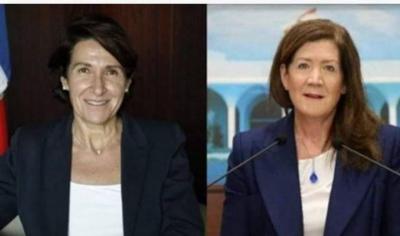As Paris continues to play a role in addressing the Lebanese crisis, Washington remains indifferent to the internal situation. The latest sign of this lack of interest is the advice to Paris not to intervene in Lebanon. Lebanese officials are focused on U.S. envoy Amos Hochstein's visit to Beirut regarding the maritime border negotiations. However, this concern does not obscure the fact that the core of the problem lies elsewhere, within the long-standing general U.S. perception of the Lebanese situation.
Since before the resignation of President Saad Hariri, through the appointment of President Najib Mikati and the formation of his government, up to the parliamentary elections, Washington's stance has remained unchanged, viewing Lebanon as not its concern. The latest indication of this disengagement is a high-level American suggestion to the French administration to cease interventions in Lebanon. Washington has advised French officials against becoming involved in the details of the internal situation, halting their initiatives, and stepping away from any practical steps intended to resolve Lebanon's intertwined crises.
The American position has been clear for months, with discussions about electricity, oil, elections, and gradually, government and presidential matters. This clarity translates to the fact that none of the mentioned issues have progressed, and the general American stance remains the same, despite attempts by some Lebanese officials to interpret it contrary to its reality, suggesting that communication between Beirut and Washington is open to a series of positives.
The American position aligns with that of Saudi Arabia, which, although some signs have emerged indicating a push for progress in the elections, remains confined to a narrow electoral context. The Lebanese issue will not receive special Saudi attention, particularly with the imminent formation of a government or the approach of the presidential file. While local stakes rise regarding placing Lebanon on the agenda for U.S.-Saudi dialogue during President Joe Biden's upcoming visit to Riyadh, contacts with American and Saudi circles confirm that Lebanon will not be a main topic in any American-Saudi negotiations, and any mention of it will be incidental. This would thus be an advanced American step to inform everyone that rescuing Lebanon's situation is not a priority.
Meanwhile, since before the French presidential elections, Paris has been attempting to convince Washington to continue engaging with the Lebanese file from the perspective of not abandoning Lebanon and helping the state as a whole, rather than limiting support to the military. However, Washington has not been persuaded by the French viewpoint, appearing insistent on distancing itself from any French initiatives until the recent clear advice was given for Paris to stop its "rescue" attempts.
The French became involved in the Lebanese crisis before and after the re-election of President Emmanuel Macron, even prior to the Beirut port explosion and the launch of their initiative. France still clings to its position regarding the completion of Macron's initiative and seeks to outline broad solutions for a range of political, financial, and economic issues. The notable aspect of its approach is its desire to confirm its role in opening permanent dialogue channels with all political forces, which consistently highlights its relationship with Hezbollah, especially after Macron's visit to Beirut and the beginning of communication between the two parties. Washington undoubtedly disapproves of this type of relationship, and its urging of Paris is not limited to this aspect but encompasses the entire Lebanese situation at all levels.
Lebanon will not be a main topic during Biden's visit to Saudi Arabia. Despite the clarity of the recent American advice, France continues to try to distance itself from the American stance, recently evident in the resumption of its diplomatic contacts and activities in Beirut. This itself is a message to Lebanese leaders that Paris is continuing along the path set by Macron since the Pine Palace meeting and is committed to supporting the formation of the government headed by President Najib Mikati, regardless of any advice it receives.
It is expected that in the interim period between the appointment of a new government and the presidential deadline, the French role will increase and its efforts to find solutions to obstacles impeding government formation will intensify. However, information suggests that the interactions between Paris and Riyadh after Macron's visit to Saudi Arabia last December, and the subsequent communication between Saudi Crown Prince Mohammed bin Salman and the Prime Minister, resulted in no practical political outcomes. Any bets on the resumption of communication with Saudi Arabia in this segment of French efforts are unlikely to succeed.
In summary, this means that Paris, in its dealings with the Lebanese file, remains alone without partners, and its continuous role as a negotiating intermediary with everyone, without exception—especially with an increase in its communications with Hezbollah—has begun to produce concerns that will generally harm the Lebanese situation, particularly if the American rejection persists as it appears so far regarding mapping out even a preliminary outline for addressing the Lebanese crises and scheduling the upcoming deadlines.




